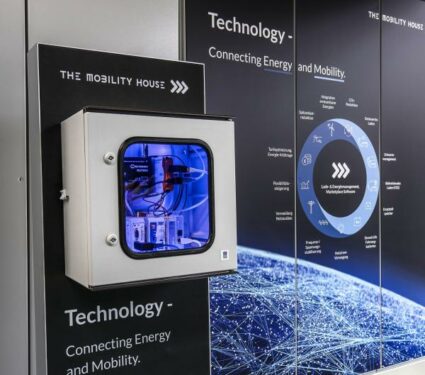German car giant Audi has opened a 1.9MWh second-life battery energy storage system (BESS) in Berlin as part of a research project.
Audi said the facility on the EUREF campus— a “climate-neutral-powered” centre for start-ups and innovation— uses lithium-ion batteries from development vehicles to test “interaction scenarios between electric cars and the power grid”.
The BESS is claimed to be Germany’s largest multi-use storage unit to compensate for fluctuations in the grid and optimise energy supply.
The 110-square-metre facility “is connected to Berlin’s medium-voltage power grid with one megawatt of power, which corresponds to the average charging requirement of around 200 electric cars”, Audi said. “With its capacity of 1.9MWh, the storage unit could supply (EUREF’s) entire 5.5-hectare office and science campus with electricity independently for just under two hours.”
In addition, Audi will work with partners to conduct a model experiment with wind farms to see how “excess green electricity can be buffered on the EUREF Campus in a targeted manner”.
In 2018, Audi and Belgium-based material tech giant Umicore announced the successful completion of phase one testing for closed loop electric vehicle battery recycling, reporting that “95% of valuable battery materials can be recycled”.
Earlier this year, Germany revealed the partners of a new government-backed battery cell consortium, as part of plans to secure the nation’s “technological sovereignty in battery technology”.












